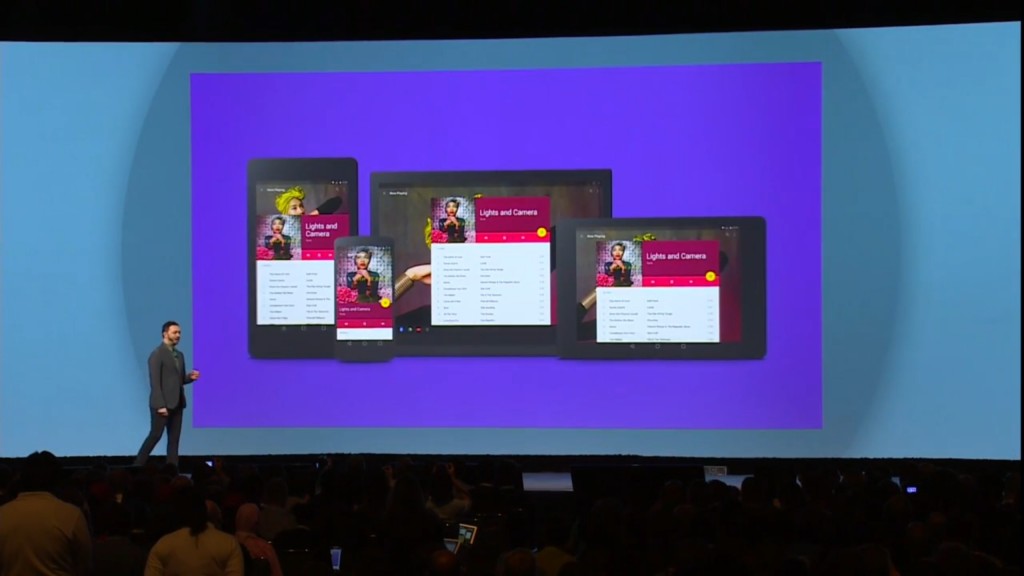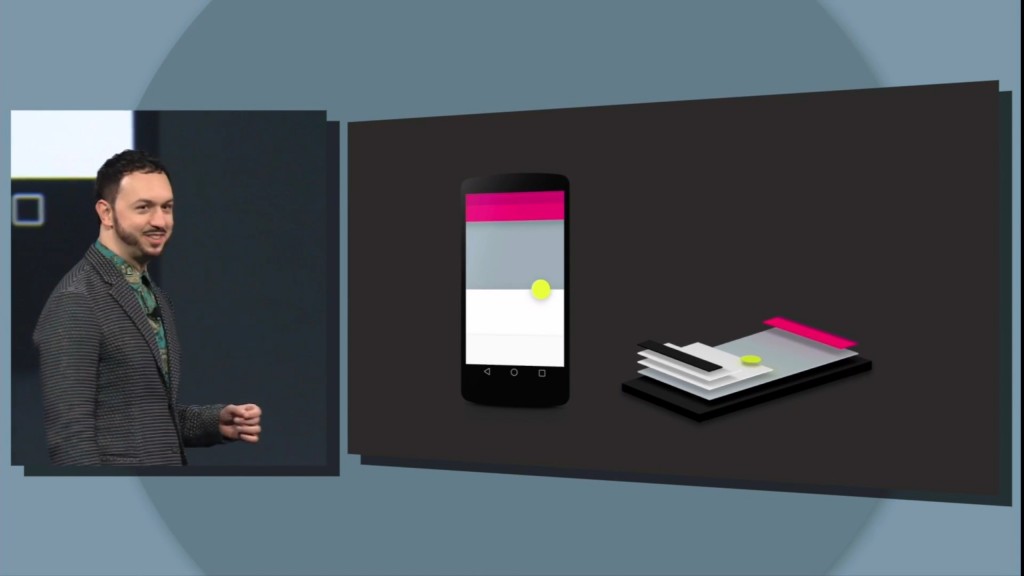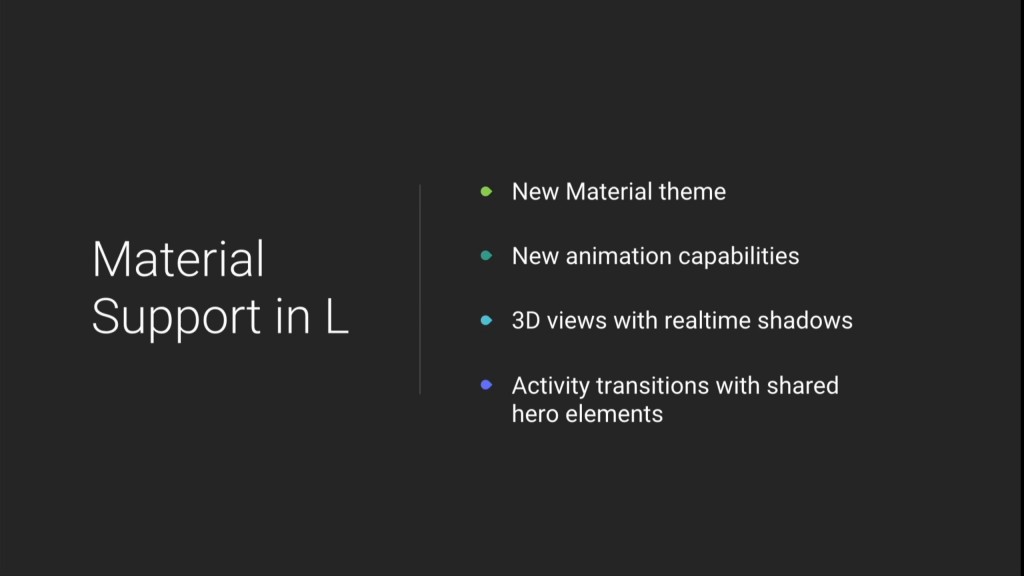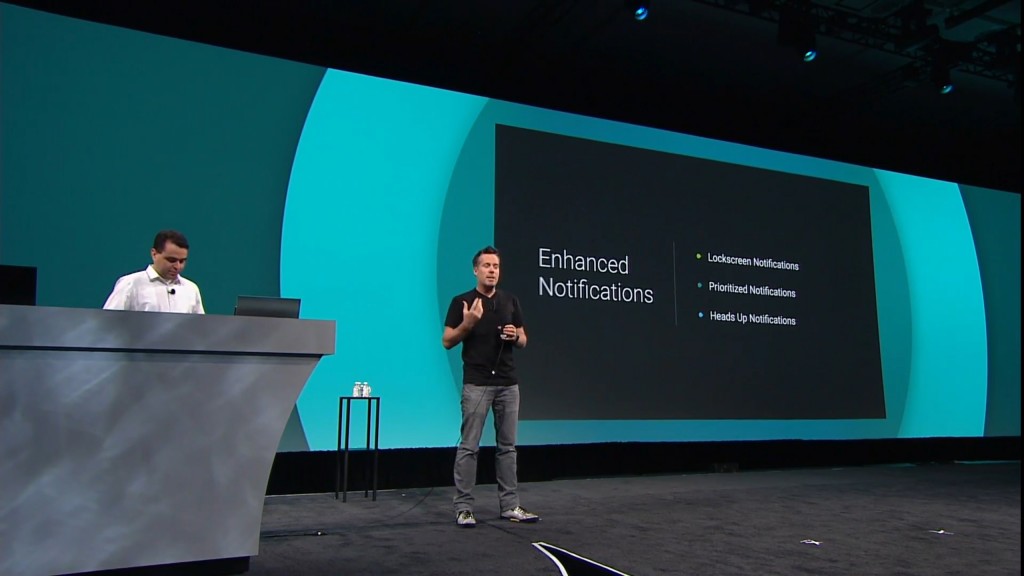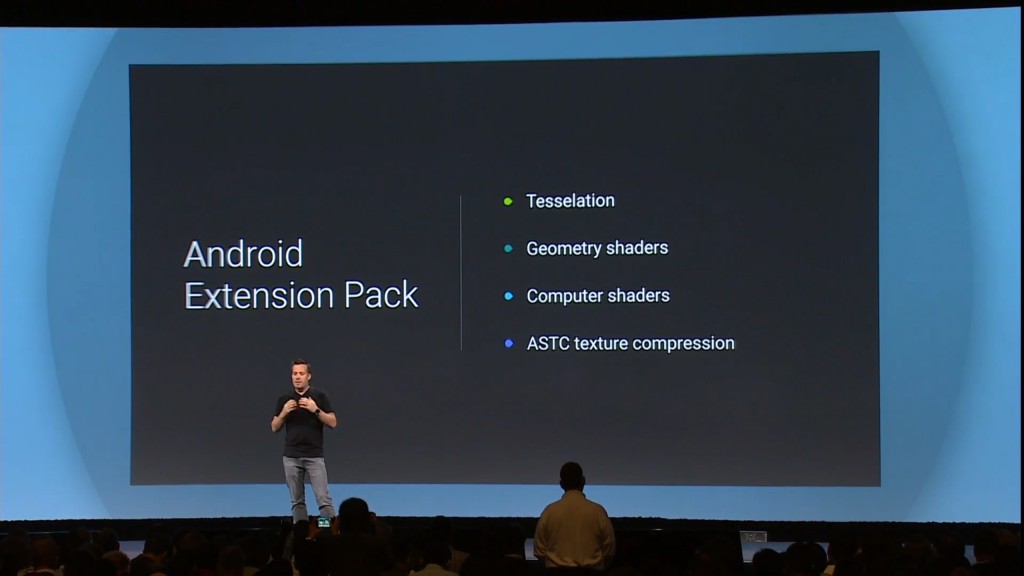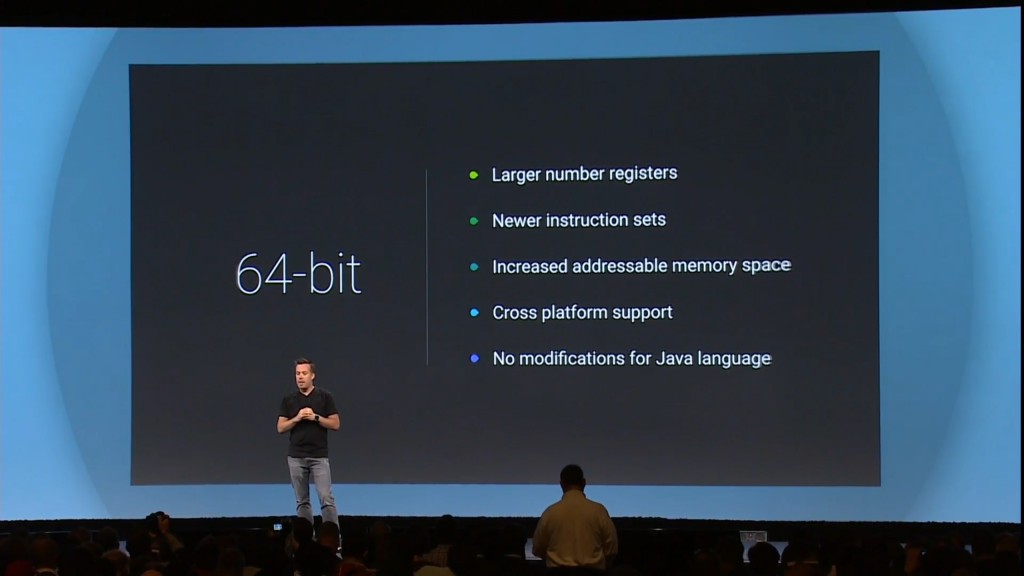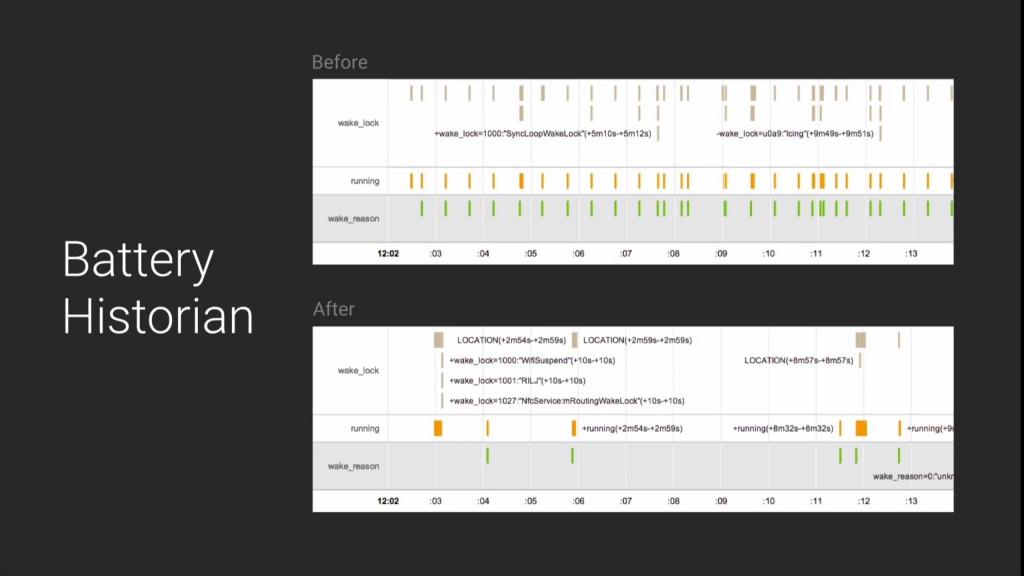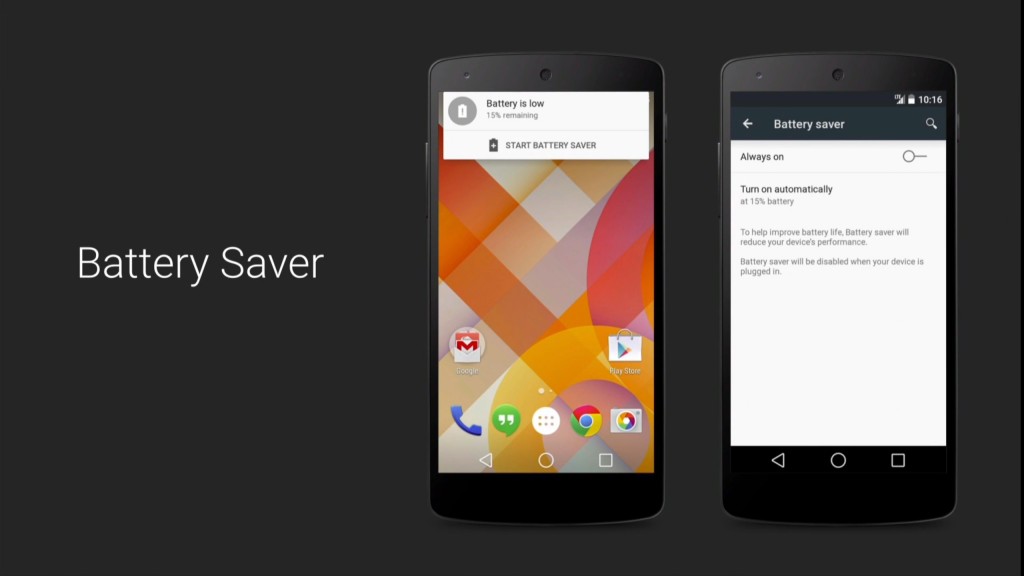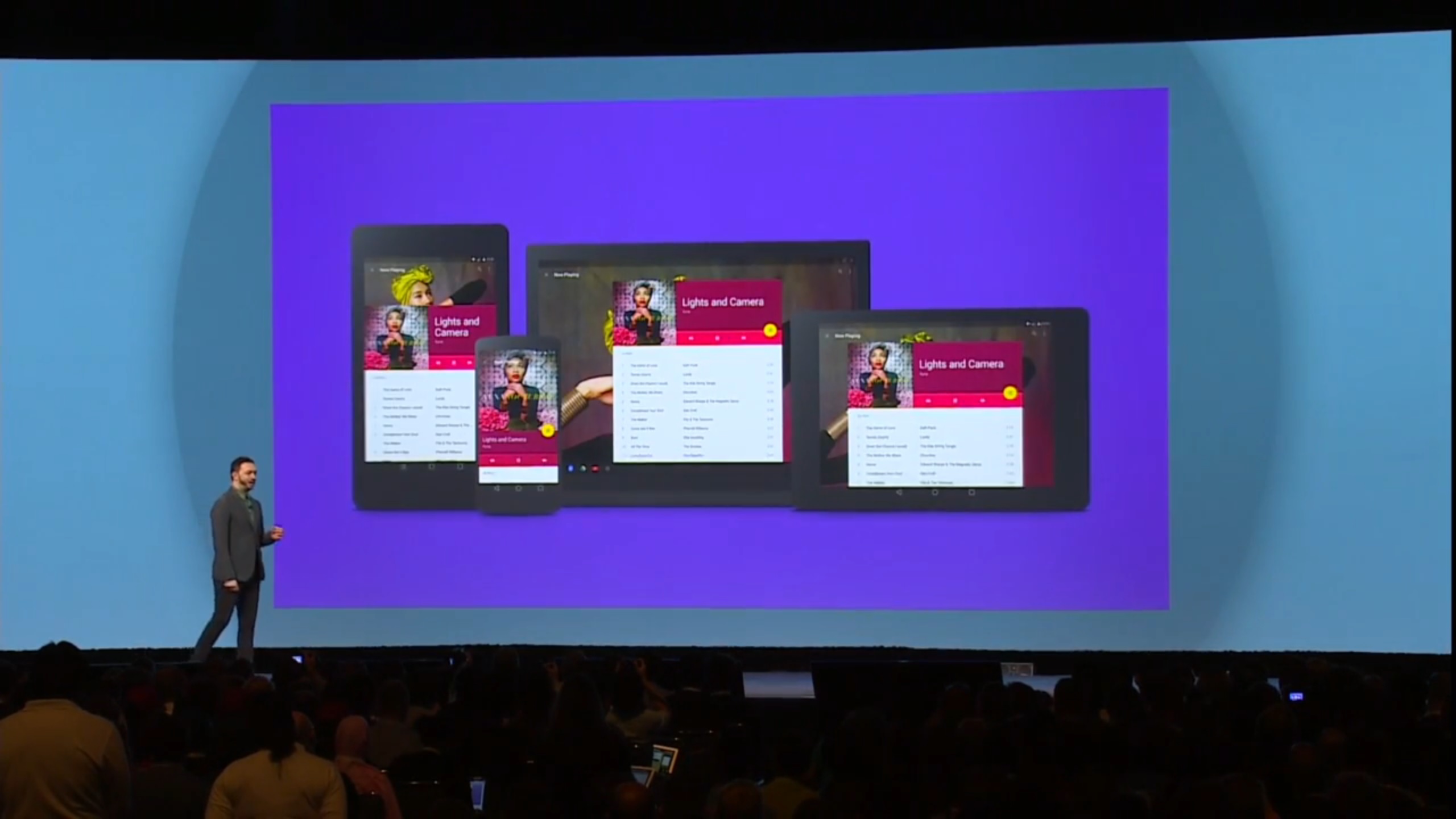Google’s yearly I/O developer conference is currently taking place, with the obvious and expected announcement of the next version of Android. The next version currently dubbed Android L and will see the biggest release in Android histroy with changes to the UI and back-end. Android L will include a lot of changes which we will try to detail most of them below. The developer preview for Android L starts tomorrow, with system images for the Nexus available tomorrow.
UI change and Material design
Android L will bring a new UI with both subtle and extensive changes through the UI for Android. The UI will include Material Design, which brings layers to different information being displayed, with lighting and animations incorporated to give the user a layered experiance with more important areas of the UI seeming closer.
Enhanced Notifications
Android L will include Enhanced notifications with notifications given more screen time and can be display directly on the lockscreen with the ability of prioritized notifications available. The biggest addition would be the heads up notifications, which enable users to stay in their open app with a notification appearing in the top of the display without interrupting their current app, but also giving them the ability to answer/reject a call on the fly.
64-bit and Extension pack
Android L brings 64-bit support to Android devices, allowing for all of the benefits that comes with 64-bit architecture including larger number registers and increased addressable memory space. Android also announced Android Extension Pack, with the aim to bring near console and desktop quality games to mobile devices.
Battery Saver
Google are also aiming Android L and bringing some extensive battery saving methods, but developing a new tool called Battery Historian. The tool also Android L to assess the entire device and measure battery performance and even more, it allows it to understand what hardware is doing what and how much power it’s using. This allows Android to bring new battery saving techniques, and even disable things like app updates and networking response when your battery is getting low. Typically things you can do later on.
